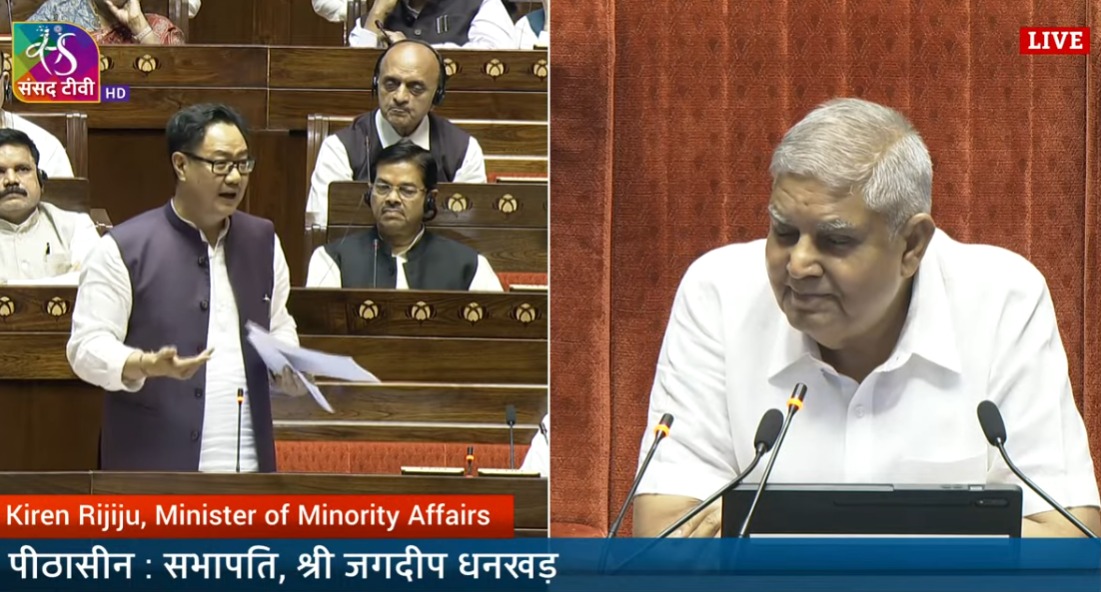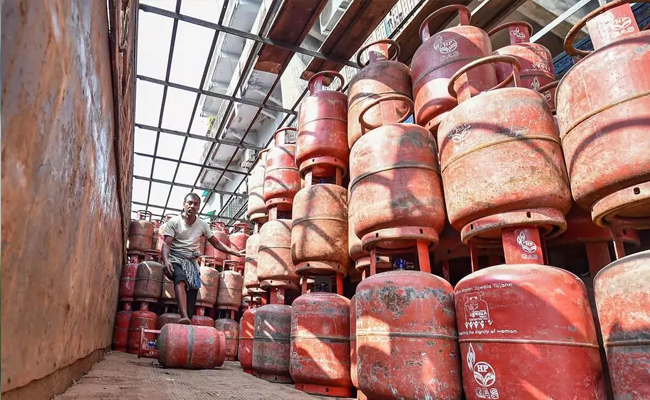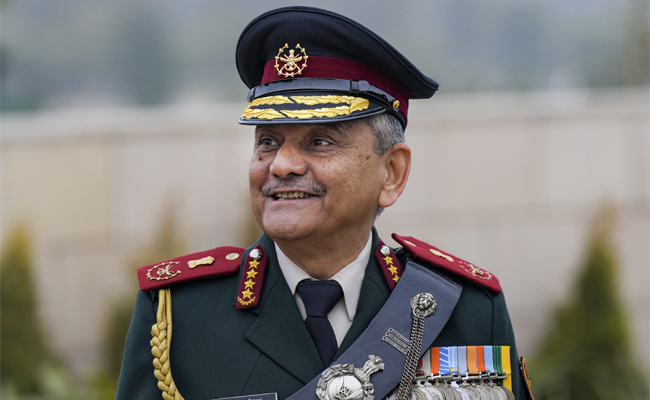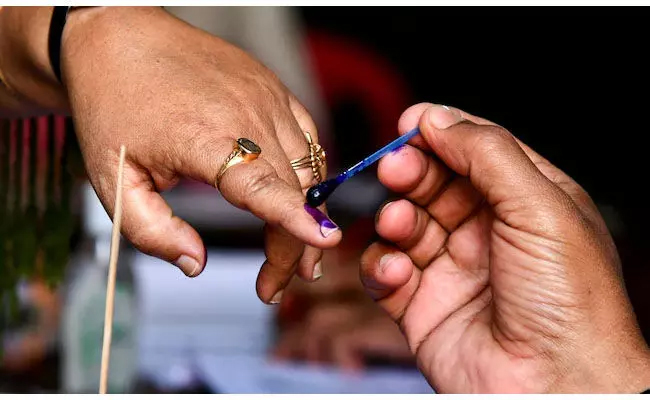New Delhi (PTI): Parliament early Friday passed the contentious Waqf (Amendment) Bill, 2025, after it was approved by the Rajya Sabha.
The Lok Sabha had on Thursday approved the Bill after over a 12-hour debate.
In Rajya Sabha, the Bill got 128 votes in its favour and 95 against after all the amendments moved by the opposition were rejected.
In the lower house, the bill was supported by 288 MPs while 232 voted against it.
Participating in a debate in the Rajya Sabha, Minority Affairs Minister Kiren Rijiju said the Bill was brought with a number of amendments based on suggestions given by various stakeholders.
"The Waqf Board is a statutory body. All government bodies should be secular," the minister said, explaining the inclusion of non-Muslims on the board.
He, however, said the number of non-Muslims has been restricted to only four out of 22.
Rijiju also alleged that the Congress and other opposition parties, and not the BJP, were trying to scare Muslims with the Waqf Bill.
"You (opposition) are pushing Muslims out of the mainstream," he added.
He said for 60 years, the Congress and others ruled the country, but did not do much for Muslims and the community continues to live in poverty.
"Muslims are poor, who is responsible? You (Congress) are. Modi is now leading the government to uplift them," the minister said.
According to the Waqf (Amendment) Bill, Waqf tribunals will be strengthened, a structured selection process will be maintained, and a tenure will be fixed to ensure efficient dispute resolution.
As per the Bill, while Waqf institutions' mandatory contribution to Waqf boards is reduced from 7 per cent to 5 per cent, Waqf institutions earning over Rs 1 lakh will undergo audits by state-sponsored auditors.
A centralised portal will automate Waqf property management, improving efficiency and transparency.
The Bill proposes that practising Muslims (for at least five years) can dedicate their property to the Waqf, restoring pre-2013 rules.
It stipulates that women must receive their inheritance before the Waqf declaration, with special provisions for widows, divorced women and orphans.
The Bill proposes that an officer above the rank of collector investigate government properties claimed as Waqf.
It also proposes that non-Muslim members be included in the central and state Waqf boards for inclusivity.
Let the Truth be known. If you read VB and like VB, please be a VB Supporter and Help us deliver the Truth to one and all.
Thane (PTI): Authorities have seized illegally stored 1,839 gas cylinders and seven vehicles worth over Rs 67 lakh in the Dombivli MIDC area of Thane district, officials said on Saturday.
A special vigilance team of the Mumbai Rationing Department detected an illegal storage of domestic and commercial LPG cylinders in Phase-2 of Dombivli (East).
Cylinders belonging to multiple gas agencies were found stockpiled in closed vehicles, unauthorised warehouses, and open sheds without mandatory permissions from the Explosives Department, Fire Department, or oil companies, according to an official release.





